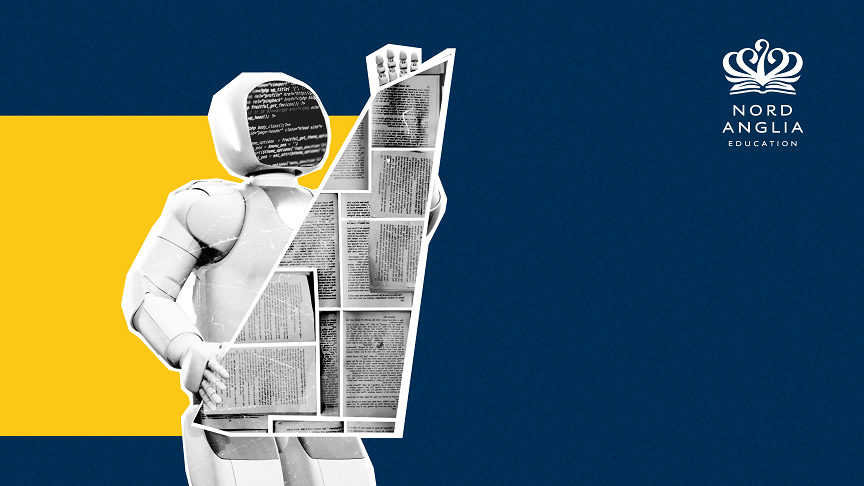We use cookies to improve your online experiences. To learn more and choose your cookies options, please refer to our cookie policy.

In November 2022, the world was introduced to ChatGPT, an artificial intelligence-powered chatbot that allows users to have a “conversation” about almost any topic, as well as instructing it to undertake all manner of tasks—including writing book reports.
It was AI’s watershed moment, and for its application in all sorts of settings, including schools. Users have already found that the technology can be used to deepen students' understanding, offer a remarkable level of personalised support and free up a huge amount of teachers’ time. But there is an obvious fear as well: will students cheat and get bots to do much of their work for them?
In the recent INSIGHTS article from Nord Anglia Education, Zofia Niemtus explores how AI is changing the education landscape and how parents can embrace the benefits while protecting against the dangers. Titled, ‘The Generative Generation’, the fascinating article cites experts from the world of education about the future of AI and its place within the sector. The main question, can AI make kids smarter, or make it easier to cheat?
TAKING A COLLABORATIVE APPROACH TO AI
At The British School of Tashkent (BST), we take a collaborative approach to AI with our students and families. As a school, we have implemented an AI working group and developed a policy, based around our learning community.
The Head of Secondary at The British School of Tashkent from August, Rebecca Wolfe, emphasises the high level of personalisation AI can offer our students, to ensure children continue to experience an outstanding education that prepares them to thrive in life.
“The future of education is unquestionably fixed on a single horizon of AI and digital innovation and, whilst that brings with it an understandable level of anxiety and uncertainty, particularly amongst parents and educators, I am fully in agreement with Dr Geddes statement that it allows for “amazing, off-the-scale differentiation in the classroom”, with content tailored to each learner to an unprecedented degree.”
DARING TO DREAM OF EDUCATIONAL EUTOPIA
Rebecca Wolfe continues, “Surely, this is the educational eutopia that all educators have dared to dream about? A world in which learning is truly personalised based on the needs of each child in a precise moment in time, whilst taking out some of the ‘heavy lifting’ of planning, marking and assessments so also addressing teacher workload and stress levels.”
CHILDREN TAUGHT BY PASSIONATE, INNOVATIVE EDUCATORS
Much like our students, our teachers never stop learning, and our staff at The British School of Tashkent are embracing the advancements in this area. Some are dipping their toes in the water with personal development sessions, whilst others are taking a deeper dive into the world of AI, sharing their experiences and leading the way at BST. For our students at school, this means children are taught by passionate, innovative educators, who are at the forefront of the latest teaching and learning techniques.
Click here to read the full INSIGHTS article from Nord Anglia Education.
To discover more about The British School of Tashkent, contact our Admissions team by filling out our enquiry form or emailing admissions@britishschool.uz.